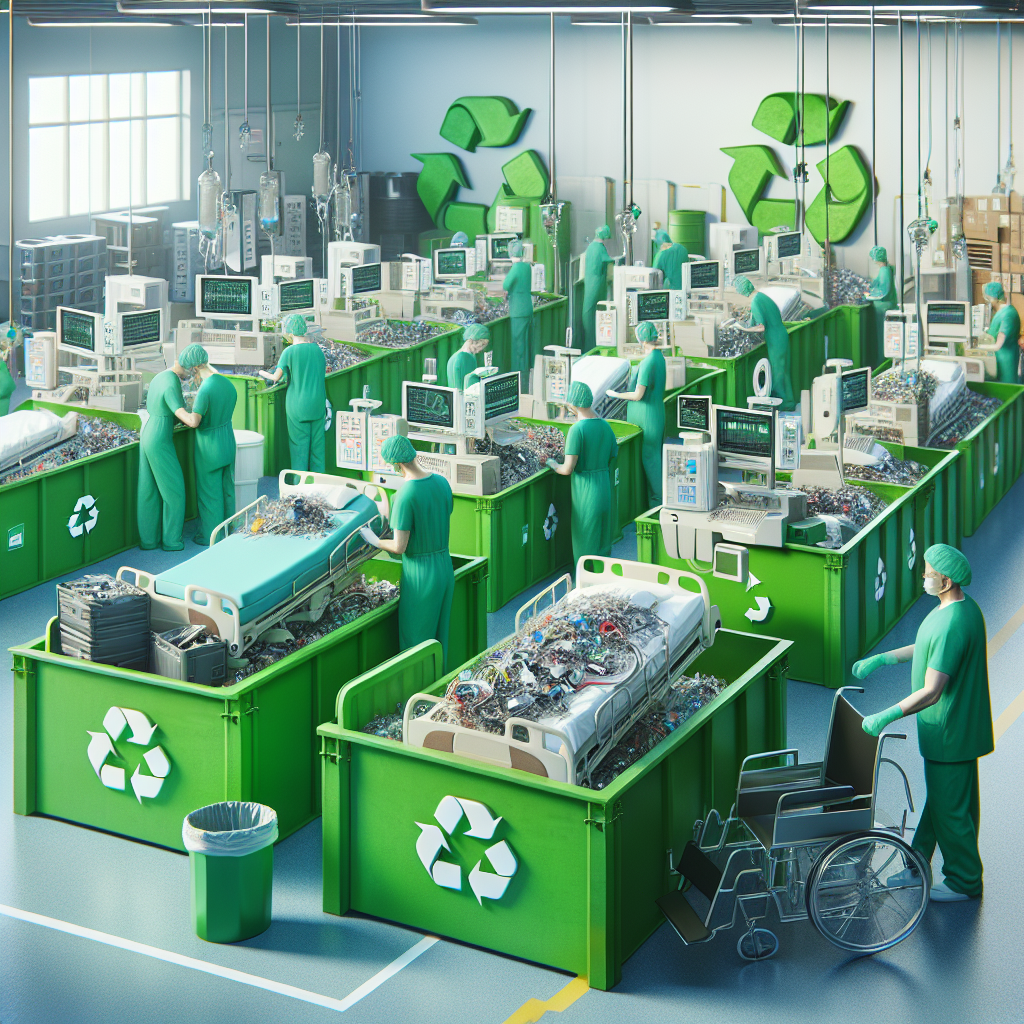Blog Ecobraz Eigre

Recycling Hospital Equipment in Compliance with Legislation
Contextualization of Hospital Equipment Recycling
The recycling of hospital equipment is an essential practice for complying with current environmental and health regulations, ensuring the reduction of waste and the protection of public health. These procedures must be aligned with Brazilian legislation, which regulates the proper handling of these materials, considering their particularities and impacts.
Legal Standards Applicable to the Management of Hospital Equipment
Brazilian legislation establishes clear guidelines for the treatment of hospital waste, including discarded equipment. The Law No. 12.305/2010, which establishes the National Solid Waste Policy (PNRS), imposes shared responsibility for the life cycle of products, highlighting the proper handling of hazardous and electronic waste.
The specific rules of the National Solid Waste Management Information System (SINIR) reinforce the need to register and monitor discarded equipment, as well as to adopt recycling practices that avoid environmental contamination and pay attention to the health of the workers involved.
Technical Procedures for Compliant Recycling
The correct recycling of hospital equipment involves stages of decontamination, disassembly and separation of components for proper disposal. Equipment containing electronic components must go through processes that guarantee the security of the stored data, including through validated processes of sanitization of data on electronic media.
In addition, the effective management of the reverse logistics of hospital electronic devices, respecting the rules of transportation and temporary storage, must be strictly followed according to the parameters established by CETESB and state and federal environmental agencies.
Collection and Final Disposal
Selective collection and proper disposal are essential steps to avoid adverse environmental impacts. Specialized systems carry out the collection of electronic waste from hospitals, ensuring that it is correctly sent to authorized recycling centers.
Compliance with these protocols also involves the documentary recording of the chain of custody of discarded equipment, as set out in the current regulatory legislation, ensuring transparency and traceability.
Impacts and Benefits of Legal Compliance
Adopting practices in accordance with legislation protects the environment from hazardous pollutants present in hospital equipment, such as heavy metals and electronic components. It also reduces public health risks related to the inappropriate exposure of this waste.
In addition, compliance with legislation avoids administrative sanctions and strengthens the social and environmental responsibility of public and private agents in the health sector.

Deixe um comentário
O seu endereço de e-mail não será publicado. Campos obrigatórios são marcados com *